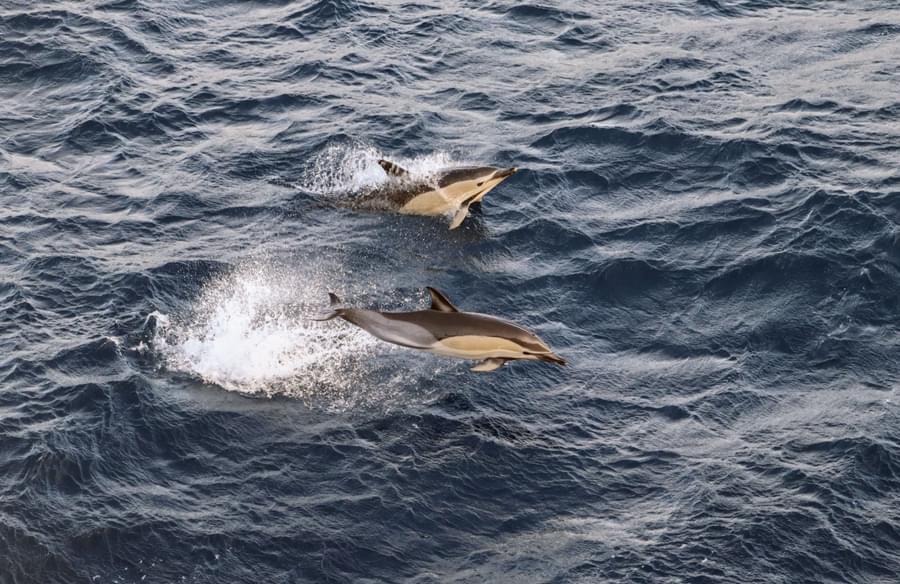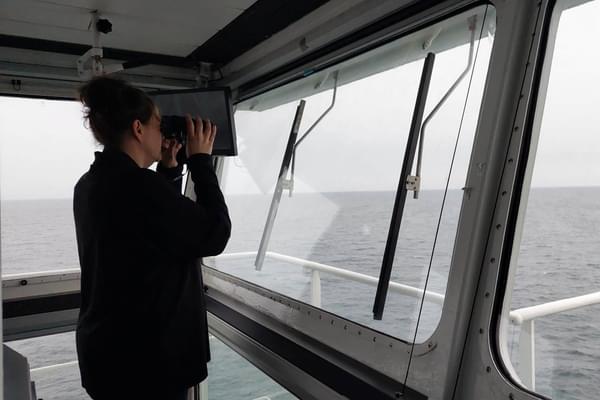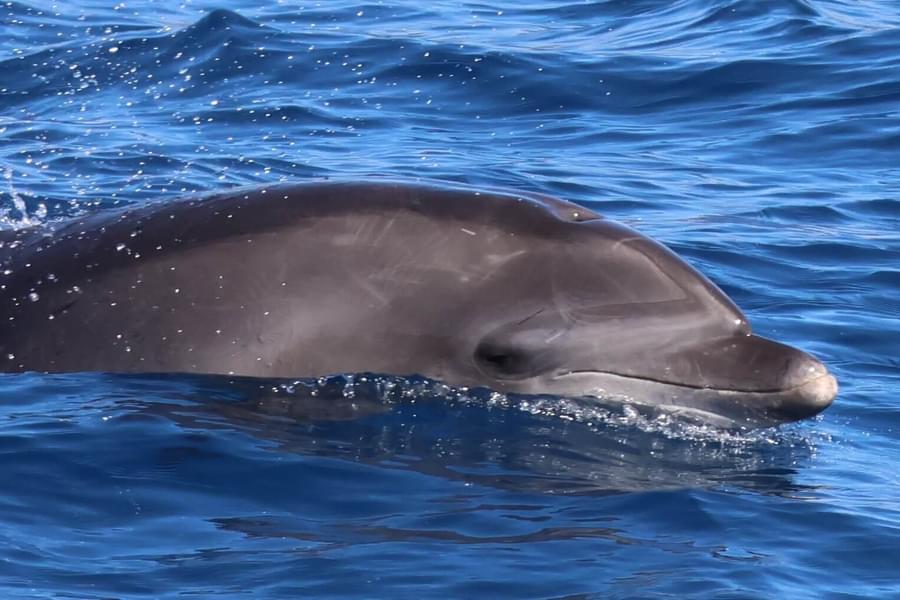Ocean Conservationists Abi and Alex reflect on their time aboard Fred Olsen’s Borealis cruise to the Caribbean via the Azores, sharing the unforgettable experience of dolphin sightings and the deeper lessons they learned about these incredible creatures.
Escaping the chilly January weather of the UK, around 1,000 passengers, including two Ocean Conservationists, set sail on a 28-day adventure across the Atlantic Ocean to the sunny Caribbean. The days at sea were filled with anticipation for the marine mammals we could encounter, and one of the highlights was definitely spotting dolphins. As we approached Praia de Vitória in the Azores, we were greeted by a pod of around 60 short-beaked common dolphins. They appeared seemingly out of nowhere, approaching the ship and then gracefully porpoising out of the water, weaving through the ship's wake, displaying their remarkable agility and intelligence. Dolphins have evolved to thrive in our world's oceans, and their highly social behaviour plays a vital role in how they interact with their environment and each other.

Dolphins are well-known for their intricate social structures. Unlike many animals, which may form loose or solitary bonds, dolphins establish close-knit pods. These pods, made up of anywhere from just a few individuals to larger groups of 30 or more, are central to a dolphin’s life. The social dynamics within a pod are complex, with dolphins forming strong relationships that often last for life. This cooperative behaviour includes hunting together, protecting each other, and nurturing social bonds that are crucial for their survival.
Communication is key to these interactions. Dolphins use a sophisticated system of vocalizations, such as clicks, whistles, and body movements, to communicate with each other. One of the most fascinating aspects of their communication is echolocation, a form of sonar. Dolphins create sound waves that bounce off objects in the environment, helping them locate food, navigate, and stay in touch with other members of their pod. Some dolphin species have even been shown to have "signature whistles," which acts almost like a name for an individual, allowing them to call out and recognise each other.
These social and communication skills are not just fascinating; they are vital to a dolphin’s well-being. Pods are a support network, where dolphins depend on each other for socializing, mating, caring for young and protection against predators. Dolphins are highly intelligent and thrive in an environment where they can continuously interact and form bonds. But when taken out of this natural setting and confined to small tanks in captivity, they face extreme challenges.
There are currently around 4,000 dolphins still held in captivity across the globe. While they may be kept with other dolphins, these are often not from the same pod and can be of different species, leading to aggressive interactions. These captive dolphins are unable to express their natural social behaviours, such as forming close relationships or communicating in the ways they’ve evolved. Instead of swimming vast distances across the ocean with their pod, they are confined to small, barren tanks with little stimulation, which can lead to stress, depression, and physical health issues.
When we saw the dolphins off the Azores, it was a stark reminder of how vital space and social interaction are for these incredible creatures. They have an entire ocean to explore, communicate, and build relationships. It became very clear that the ocean is where they truly belong, not in a concrete tank.

Do you want to actively contribute to whale and dolphin conservation in 2025?
The only way we can protect whales and dolphins is by understanding their distribution, so monitoring is vital for effective conservation. Join us on our next Marine Mammal Surveyor course on the 5th April, to train up before our busy 2025 surveying season across the UK ferry network.

